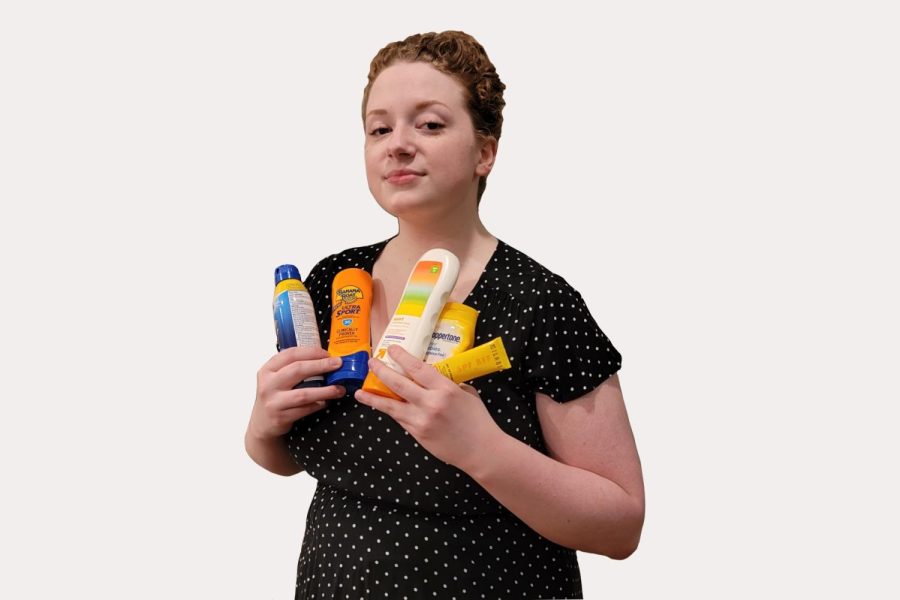Wake up and smell the sunscreen
Sunscreen can come in many different varieties, even being incorporated into some cosmetic products.
April 6, 2022
The unpredictable Midwest weather is starting to warm up and DGS is buzzing with excitement for spring break. This pleases me, yet also reminds me that the most tedious truth of the changing seasons is back to haunt me: sunscreen. As much as the reality of the sun’s power to harm me raises concerns, I use sunscreen enthusiastically, and it breaks my heart when other people don’t take it seriously.
As an extremely fair-skinned person with skin cancer in my family history, sun protection is not something I neglect. Once you have gotten sunburned so badly that you become sick with a fever and nausea, you never want to forget to apply and reapply, and for how sensitive my skin is, that is about every twenty-five minutes.
Sunscreen is definitely an inconvenience that I have had to learn to live with, but I think it’s well worth it, not just to avoid the pain and suffering of sunburn, but also for more vain reasons. Yale Medicine describes the effects of the sun’s Ultraviolet (UV) rays on the skin as photoaging, which has symptoms like change in pigmentation, wrinkling, uneven texture and more. We live in a very beauty-oriented society and one common beauty standard is to have a tan, but the unfortunate irony is that the UV exposure it takes to get that tan, whether natural or artificial, may cause skin damage that many will find unappealing anyway, catching people in a vicious cycle of beauty standards and trauma to their complexion.
As important as I think is that everyone shields their skin to maintain their youthful glow, more importantly, I wish people would be diligent about sunscreen for the sake of their own health. Many believe that sunburn is the only way to tell if the skin has sun damage and that if they typically tan, they don’t need to worry as much about sunscreen, when in reality, a tan is an indicator of harm. When the skin is hurt by UV rays, it works to produce more melanin, the skin’s pigment, to prevent further damage.
This only fuels the misconception that people who tan, especially people of color who have more melanin to begin with, do not need to concern themselves with sunscreen. Increased sun exposure, whether or not the person has a family history of skin conditions and regardless of the amount of melanin someone has, puts people at a higher risk of developing skin cancer.
Even though people with more melanin do have a stronger natural barrier to UV rays, when people are misinformed and led to believe that they don’t need to worry about protection at all on account of the color of their skin, it makes the prevention of skin cancer, like many other health concerns, a racial issue.
It is imperative that we finally accept using sunscreen. When I reapply as frequently as I do, I get mocked for being “obsessive,” but really, I’m just someone who makes wise choices that preserve my health and striking good looks. So, over spring break when you travel to enjoy the hot weather, do your part to make sunscreen the hottest trend.

